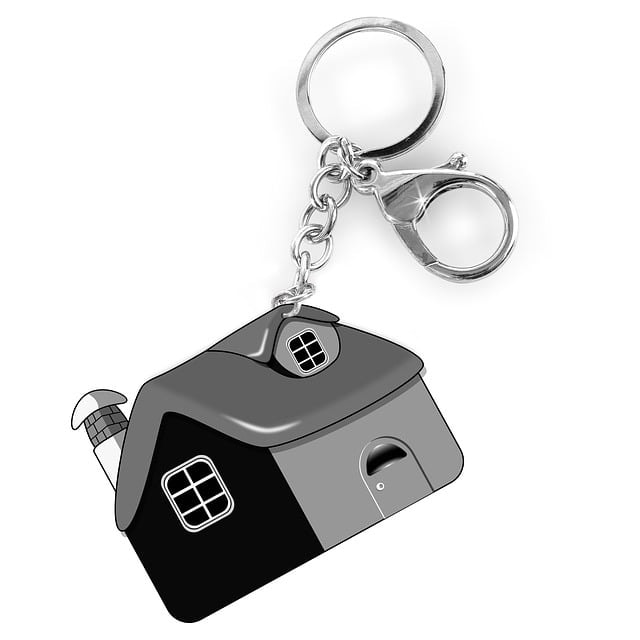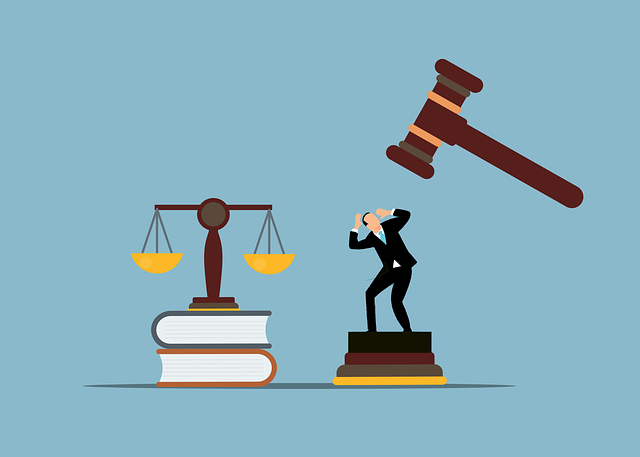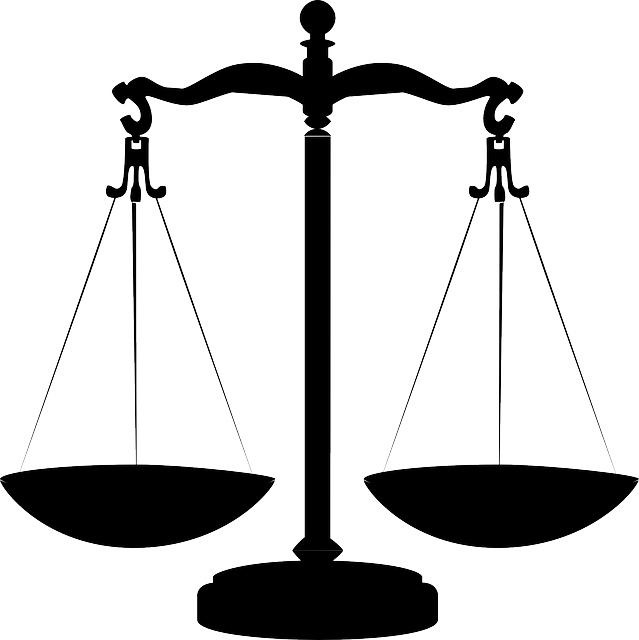Finding the Right Landlord Harassment Attorney to Protect Your Rights

When facing landlord harassment in Los Angeles, finding the right landlord harassment attorney can make all the difference in protecting your rights and securing your housing situation. Landlord harassment comes in many forms—from illegal entries to utility shutoffs to intimidation—and the right legal representation can help tenants address these violations of California Civil Code.
Understanding When a Landlord Harassment Attorney Can Help
with Civil Code Violations

Not every landlord-tenant disagreement requires an attorney, but certain situations strongly indicate the need for legal representation for a Los Angeles tenant:
- Repeated violations of your quiet enjoyment or right to privacy
- Utility shutoffs or removal of essential housing services
- Threats, verbal abuse, or creation of a hostile living environment
- Landlord retaliation for exercising your legal rights
- Attempts to force tenants out without proper eviction procedures
- Negligent landlords creating unsafe conditions in your rental unit in violation of California Civil Code Section 1941.1
- Sexual harassment or housing discrimination based on citizenship status or sexual orientation
How to Find a Qualified Landlord Harassment Attorney Under California Civil Code Section Protections

1. Seek Referrals from Trusted Sources for Los Angeles Housing Laws Specialists
Start by contacting local advocacy organizations like the Tenants Union in Los Angeles, as they often maintain lists of law firms who specialize in tenant harassment cases and housing laws. These organizations can provide valuable insights about attorneys’ reputations and effectiveness in handling landlord violations.
2. Use Legal Referral Services for California Penal Code Section Violations
Bar associations in Los Angeles County and throughout California offer attorney referral services. These services can connect you with tenant law group specialists who can offer a consultation to discuss how to tenant prove landlord harassment under California law.
3. Research Legal Aid Options for Civil Code Section Enforcement
If you have limited financial resources, investigate legal assistance options in Los Angeles. Many provide free or low-cost representation to qualifying California tenants facing violations of California Civil Code Section 1942.5, which prohibits landlord retaliation and protects tenants rights.
4. Evaluate Experience and Specialization in Landlord Harassment and Housing Laws
When interviewing potential landlord harassment attorneys, ask specific questions about:
- Their experience with cases where a landlord engages in harassment under California Penal Code Section 484 (theft of utilities) or other criminal charges
- Familiarity with local ordinances like the anti harassment ordinance in Los Angeles
- Past success in helping clients collect actual damages and civil penalties
- Their approach to wrongful eviction cases and making a landlord accountable
5. Understand Fee Structures for Negligent Landlords Cases and Consultation Options
Discuss payment options during your consultation. Many law firms in Los Angeles that handle tenant harassment work on:
- Contingency fees (percentage of any settlement)
- Sliding scale fees based on income
- Flat fees for specific services
- Hourly rates for a reasonable amount of time
Under California Civil Code, tenants can often recover attorney fees from landlords found guilty of harassment in bad faith, making legal representation more accessible.
Preparing for Your Consultation About Landlord Retaliation

Before meeting with a landlord harassment attorney for your consultation, gather:
- Your rental agreement
- Documentation of all repeated acts of harassment
- Communications with your landlord or property managers
- Photos or video evidence of damage to tenant’s property
- Witness statements from other tenants
- Records of complaints filed with the housing authority or utility company
The more organized your information about potential violations of California Civil Code Section 1942.4 (habitability) or other housing laws, the more effectively an attorney can evaluate your case.
Legal Remedies Available Under California Civil Code for Los Angeles Tenants

A good landlord harassment attorney can help you seek various remedies:
- Civil penalties against the landlord
- Punitive damages for particularly egregious cases
- Compensation for emotional distress
- A court order to stop further harassment
- Use of harassment as an affirmative defense in eviction proceedings
- Potential criminal penalties for the landlord in severe cases
- Filing in small claims court for minor damages
Working Effectively With Your Landlord Harassment Attorney in Los Angeles

Once you’ve hired a landlord harassment attorney in Los Angeles or San Francisco:
- Document any unlawful behavior that continues
- Follow their advice about sending a formal letter to your landlord
- Be aware of your rights regarding landlord entry during normal business hours to perform repairs
- Understand the difference between state law and local ordinances that may protect tenants
Remember that landlord harassment cases involving violations of housing service required by law can take time to resolve, but having professional legal representation significantly improves your chances as a tenant of addressing considered harassment and holding your landlord responsible for their actions.
Understanding the California Civil Code Protections Against Landlord Harassment
The California Civil Code provides robust protections for tenants facing harassment. Under California Civil Code Section 1940.2, a landlord is prohibited from using threats, force, or intimidation to influence a tenant to vacate a dwelling. This includes threats to report a tenant’s immigration status to authorities, which is explicitly prohibited.
Tenants in Los Angeles should be aware that local protections often exceed state standards. The Los Angeles Tenant Anti-Harassment Ordinance (TAHO) provides additional protections against reducing services, refusing to acknowledge or accept rent payments, and other forms of harassment not explicitly covered under state civil code section regulations.
A knowledgeable landlord harassment attorney can help you navigate the complex interplay between state and local protections, ensuring you leverage all available legal tools to combat landlord harassment.
Documenting Landlord Violations for Legal Action Under Housing Laws
Proper documentation is crucial when working with a landlord harassment attorney to build a case against negligent landlords. Courts require evidence, and the burden typically falls on the tenant to tenant prove landlord harassment has occurred.
Maintain a detailed chronological log of all incidents, including:
- Date, time, and duration of each harassment event
- Names of witnesses present
- Exact words spoken in cases of threats or verbal abuse
- Photos of any physical damage or unsafe conditions
- Copies of any written communications
- Records of all repair requests and the landlord’s response (or lack thereof)
Your attorney will use this documentation to establish patterns of behavior that violate housing laws and demonstrate the landlord’s intent to harass rather than isolated incidents that could be explained away as misunderstandings.
Special Considerations for Landlord Retaliation Cases in California
Landlord retaliation occurs when a landlord takes adverse action against a tenant for exercising their legal rights. Under California Civil Code Section 1942.5, tenants are protected from retaliation for actions such as:
- Complaining about uninhabitable conditions
- Organizing with other tenants
- Reporting code violations to authorities
- Exercising rights under rent control ordinances
In Los Angeles, a landlord harassment attorney can help establish the critical timeline between your protected activity and the landlord’s adverse action. California law creates a presumption of retaliation if the adverse action occurs within 180 days of your protected activity, shifting the burden to the landlord to prove they acted with legitimate business reasons rather than retaliatory intent.
How Housing Authority Complaints Support Your Landlord Harassment Case
Filing complaints with your local housing authority creates an official record of your issues that can significantly strengthen your legal position. These agencies have the power to:
- Conduct independent inspections of code violations
- Issue citations to your landlord
- Impose administrative penalties
- Create objective third-party documentation of conditions
Your landlord harassment attorney can use these official findings as evidence in court proceedings, often carrying more weight than tenant testimony alone. Additionally, many housing laws violations documented by authorities can result in per-day penalties that accumulate, increasing your potential compensation and creating leverage in settlement negotiations.
When speaking with inspectors, be factual and specific about conditions without editorializing about your landlord’s character or intent. Focus on objective violations that can be observed and documented during their visit.
Seeking Civil Penalties and Damages with a Landlord Harassment Attorney

Under California Civil Code Section 1940.2, tenants can recover civil penalties of up to $2,000 for each instance of harassment. In Los Angeles, local ordinances can increase these penalties substantially, with some violations carrying penalties of up to $10,000 per occurrence.
Beyond statutory penalties, your landlord harassment attorney can help you pursue:
- Economic damages for increased costs (hotel stays, replacement of damaged property)
- Non-economic damages for emotional distress
- Punitive damages in cases of particularly malicious harassment
- Attorney’s fees and court costs
California courts have increasingly recognized the serious impact of tenant harassment, with some recent judgments exceeding $100,000 in particularly egregious cases involving negligent landlords who engaged in systematic harassment campaigns.
Navigating Eviction Defense with a California Civil Code Specialist

Many landlord harassment cases occur in the context of attempted evictions. Your landlord harassment attorney can use evidence of harassment as an affirmative defense against eviction proceedings, potentially negating the landlord’s case entirely.
In Los Angeles, the Tenant Anti-Harassment Ordinance specifically provides that harassment can serve as a defense in unlawful detainer (eviction) actions. This powerful tool allows tenants to not only defend against eviction but potentially counter-sue for harassment in the same proceeding.
When facing both harassment and eviction threats, it’s critical to consult with a landlord harassment attorney who specializes in eviction defense under California Civil Code. The procedures and timelines for eviction cases are strictly enforced, and missing deadlines can result in default judgments regardless of the merits of your harassment claims.
How a Consultation Can Determine Your Legal Options

Most landlord harassment attorneys offer a consultation to evaluate your case. During this initial meeting, the attorney will:
- Review your documentation of harassment incidents
- Explain relevant housing laws that apply to your situation
- Assess the strength of your potential claims
- Outline potential legal strategies and remedies
- Discuss fee arrangements and costs
Come prepared with specific questions about the attorney’s experience with similar cases, their familiarity with your specific building or landlord (as some landlords have reputations known to experienced attorneys), and their approach to negotiation versus litigation.
Remember that even if you decide not to pursue legal action after the consultation, the information you gain about your rights as a Los Angeles tenant can be invaluable in addressing the situation directly with your landlord.
Criminal Charges for Severe Landlord Harassment Under California Penal Code Section

In the most severe cases of landlord harassment, criminal charges may be appropriate. Actions that potentially violate the California Penal Code Section include:
- Physical assault or threats of violence (PC 240/422)
- Illegal lockouts (PC 418)
- Theft of tenant property (PC 484)
- Vandalism (PC 594)
- Utility shutoffs (PC 593)
- Criminal trespass (PC 602)
While a landlord harassment attorney primarily handles civil matters, they can coordinate with law enforcement and prosecutors when criminal activity is involved. Criminal convictions can strengthen your civil case and may result in court orders prohibiting the landlord from contacting you or entering your unit except under strictly limited circumstances.
In Los Angeles, the City Attorney’s office has a specialized unit dedicated to addressing criminal landlord behavior and works closely with experienced tenant attorneys to coordinate enforcement efforts against particularly problematic property owners.
Understanding the Hostile Living Environment Standard in Harassment Cases

Creating a hostile living environment is a recognized form of harassment under both California Civil Code and Los Angeles municipal regulations. This can include:
- Excessive noise designed to disturb your peace
- Noxious odors or air quality issues
- Aggressive confrontations in common areas
- Selective enforcement of rules against specific tenants
- Encouraging harassment by other building occupants
- Intimidating surveillance or monitoring
A landlord harassment attorney can help establish that these conditions rise to the legal standard of harassment rather than mere annoyances. The test typically involves proving the conditions would interfere with a reasonable person’s use and enjoyment of their rental unit and demonstrating the landlord’s actions were intentional rather than accidental or necessary for legitimate business purposes.
Courts in California have increasingly recognized that subtle forms of harassment creating a hostile living environment can be just as effective at forcing tenants out as more obvious violations like utility shutoffs, and have become more willing to award damages in these cases.
Special Protections for Protected Classes Under Housing Laws
Landlord harassment targeting tenants based on protected characteristics carries additional legal consequences. Under federal, state, and local housing laws, harassment based on race, religion, national origin, familial status, disability, sexual orientation, gender identity, citizenship status, source of income, or age is subject to enhanced penalties.
If you believe your landlord’s harassment is motivated by discriminatory intent, your landlord harassment attorney can pursue additional claims under fair housing laws. These cases often involve coordination with government civil rights enforcement agencies and can result in substantially higher damages and penalties.
In Los Angeles, the Housing and Community Investment Department (HCID) has a dedicated fair housing division that investigates discrimination complaints and can provide additional documentation to support your legal case.
The Role of Civil Code Section 789.3 in Protecting Against Utility Shutoffs

Among the most serious forms of landlord harassment is the illegal termination of utilities. California Civil Code Section 789.3 specifically prohibits landlords from willfully terminating electricity, water, gas, or other essential services. This protection applies regardless of whether the tenant is behind on rent or otherwise in violation of the lease terms.
A skilled landlord harassment attorney can leverage this powerful section of the civil code to seek statutory damages of $100 per day for each day utilities remain disconnected, plus actual damages suffered by the tenant. Importantly, these penalties apply even if the landlord eventually restores services, creating significant financial incentive for immediate compliance.
When documenting utility shutoffs, be sure to contact the utility company directly to determine whether the interruption was caused by landlord action rather than general service issues. This third-party verification creates crucial evidence for your case and helps establish the willful nature of the violation.
Understanding Anti-Harassment Ordinance Protections for Los Angeles Tenants
The Los Angeles anti harassment ordinance provides some of the strongest tenant protections in the nation. Unlike the more general California Civil Code provisions, the local ordinance specifically enumerates prohibited behaviors, including:
- Reducing services required by the rental agreement
- Failing to perform repairs and maintenance
- Abusing the right of access to the rental unit
- Verbal or physical threats and intimidation
- Misrepresenting to a tenant that they are required to vacate
- Inquiring about immigration status
- Disclosing tenant information to third parties
A landlord harassment attorney familiar with Los Angeles housing regulations can help you determine whether your landlord’s actions violate this ordinance, which may provide for remedies beyond those available under state law. The ordinance allows tenants to recover reasonable attorney’s fees if they prevail, making legal representation more accessible for many Los Angeles tenants.
How Civil Code Section 1942.4 Addresses Uninhabitable Conditions as Harassment
When negligent landlords fail to address serious habitability issues, this can constitute a form of harassment, particularly when the neglect appears designed to force tenants to vacate. California Civil Code Section 1942.4 prohibits landlords from demanding or collecting rent when a property contains serious habitability defects that have been verified by a housing inspector.
If your landlord has been cited for code violations yet continues to demand full rent without addressing the issues, a landlord harassment attorney can help you:
- File for rent abatement (reduction) based on decreased value of the uninhabitable unit
- Pursue damages for breach of the implied warranty of habitability
- Use the violations as evidence of harassment in a broader legal action
- Exercise “repair and deduct” remedies to address critical issues
Courts increasingly recognize that maintaining uninhabitable conditions can constitute a sophisticated form of harassment, particularly in gentrifying neighborhoods where landlords may seek to remove long-term tenants paying below-market rents.
Leveraging Small Claims Court for Landlord Harassment Cases

While many complex landlord harassment cases require full legal representation, small claims court can be an effective venue for addressing certain types of harassment. In California, tenants can seek up to $10,000 in damages in small claims court without an attorney, making it an accessible option for many.
This venue is particularly effective for clear-cut violations such as:
- Illegal entries documented by security cameras
- Minor damage to tenant’s property
- Return of security deposits withheld in bad faith
- Straightforward violations of the rental agreement
Although you cannot bring an attorney to represent you in small claims court, you can consult with a landlord harassment attorney beforehand to help prepare your case, organize evidence, and develop your legal arguments. Many attorneys offer limited-scope services specifically for small claims court preparation at a fraction of the cost of full representation.
The Importance of Consultation with Multiple Landlord Harassment Attorneys
The field of tenant rights law is specialized, and not all attorneys have the same experience or approach. Taking advantage of consultation offers from multiple landlord harassment attorneys allows you to compare perspectives, strategies, and fee structures before making a commitment.
During these consultations, pay attention to:
- Whether the attorney listens carefully to your specific situation
- Their familiarity with the particular housing laws relevant to your case
- Their assessment of potential outcomes and timeline
- Their communication style and responsiveness
- Their willingness to explain legal concepts in understandable terms
Many tenants report that interviewing several attorneys helped them not only find the right legal representation but also better understand their own case and the legal options available. Most importantly, these consultations help establish realistic expectations about the legal process and potential outcomes.
Conclusion: Taking Action Against Landlord Harassment with Proper Legal Representation
Facing landlord harassment can be an emotionally draining experience, but with the right landlord harassment attorney, Los Angeles tenants can effectively assert their rights and hold negligent landlords accountable. The complex web of California Civil Code, California Civil Code Section protections, California Penal Code Section provisions, local housing laws, and municipal ordinances creates a robust framework of tenant protections.
By carefully documenting harassment, seeking appropriate legal counsel, and understanding the specific protections available under civil code section regulations, tenants can transform from victims to advocates for their rights. Remember that many attorneys offer a free consultation to evaluate your case, making legal representation accessible even to tenants with limited financial resources.
The process of addressing landlord harassment through legal channels not only helps individual tenants but contributes to the broader enforcement of tenant protections that benefit all residents of rental housing. When landlords face significant consequences for harassment, the entire rental market becomes safer and more equitable for everyone.
The Impact of Recent Legal Precedents on Landlord Harassment Cases
The landscape of tenant protection law continues to evolve through important court decisions that shape how landlord harassment cases are adjudicated. Recent legal precedents in California have expanded the interpretation of what constitutes actionable harassment under the California Civil Code.
In the landmark case Mataele v. Urban Pacific Investments (2023), the California Court of Appeal held that a pattern of minor intrusions and service reductions, when viewed collectively, could constitute harassment even when no single action would rise to that level. This decision has been instrumental for Los Angeles tenants facing subtle forms of pressure from landlords.
Your landlord harassment attorney should stay current with these evolving interpretations of housing laws to leverage the most recent precedents in your favor. Cases involving novel harassment tactics, such as digital surveillance or manipulation of building systems, are particularly dependent on recent case law, as these methods weren’t contemplated when many tenant protection statutes were originally drafted.
Addressing Constructive Eviction Claims with a Landlord Harassment Attorney
Constructive eviction occurs when a landlord creates conditions so intolerable that they effectively force a tenant to vacate, even without a formal eviction notice. This concept is recognized under California Civil Code as a serious form of landlord harassment.
To prove constructive eviction, a Los Angeles tenant must generally establish:
- The landlord substantially interfered with your use and enjoyment of the premises
- The interference was either intentional or grossly negligent
- You provided notice and opportunity to remedy the conditions
- The conditions were so severe that you were forced to vacate
A skilled landlord harassment attorney can help you build this case by:
- Documenting the timeline of deteriorating conditions
- Establishing the causal connection between landlord actions and uninhabitability
- Demonstrating your reasonable attempts to resolve the issues before vacating
- Calculating damages including moving expenses, increased rent at a new location, and emotional distress
Courts have increasingly recognized that constructive eviction can be a calculated strategy by unscrupulous landlords to circumvent eviction protections, particularly in rent-controlled units where formal eviction options may be limited.
The Role of Technology in Documenting Landlord Harassment
Modern technology provides powerful tools for tenant prove landlord harassment claims that weren’t available in previous decades. Your landlord harassment attorney may recommend strategic use of:
- Smart doorbells or security cameras to document unauthorized entries
- Smartphone apps specifically designed to log and timestamp landlord interactions
- Environmental sensors to record temperature, noise levels, or air quality issues
- Digital communication platforms that automatically preserve message histories
- Online tenant organizing tools that help coordinate evidence collection among other tenants
These technological solutions create objective evidence that can significantly strengthen your case by removing the “he said/she said” element from many harassment situations. However, it’s important to consult with your attorney about privacy laws and proper notification requirements before implementing recording systems in your rental unit.
Many law firms specializing in tenant rights now offer guidance on legal and effective documentation strategies using consumer technology, recognizing that contemporaneous digital evidence often proves decisive in modern landlord harassment litigation.
Recovery of Attorney Fees in Successful Landlord Harassment Cases
One of the most important aspects of California Civil Code Section provisions protecting tenants is the ability to recover attorney fees when prevailing in landlord harassment cases. This fee-shifting provision makes it financially viable for attorneys to represent tenants who otherwise couldn’t afford legal representation.
When consulting with a landlord harassment attorney during your consultation, discuss:
- The specific statutory bases for fee recovery in your particular case
- The attorney’s track record in securing fee awards from courts
- Whether the attorney is willing to seek fees from the court rather than taking them from your damage award
- How fee arrangements might change if your case proceeds to trial versus settling early
This fee recovery mechanism serves the public policy goal of ensuring that tenants can enforce their rights regardless of financial resources, effectively deputizing private attorneys to supplement limited government enforcement of housing laws.













